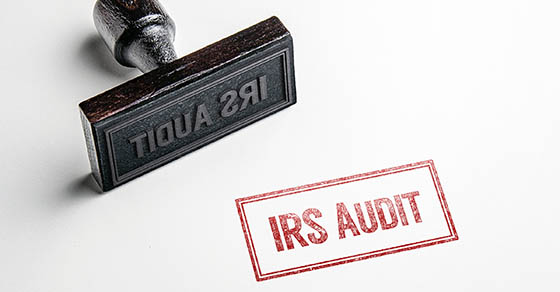
The IRS has been increasing its audit efforts, focusing on large businesses and high-income individuals. By 2026, it plans to nearly triple its audit rates for large corporations with assets exceeding $250 million. Under these plans, partnerships with assets over $10 million will also see audit rates increase tenfold by 2026. This ramp-up in audits is part of the IRS’s broader strategy, funded by the Inflation Reduction Act, to target wealthier entities and high-dollar noncompliance.
The IRS doesn’t plan to increase audits for individuals making less than $400,000 annually. Small businesses are also unlikely to see a rise in audit rates in the near future, as the IRS is prioritizing more complex returns for higher-wealth entities. For example, the tax agency has announced that one focus area is taxpayers who personally use business aircraft. A business can deduct the cost of purchasing and using corporate planes, but personal trips, including vacation travel, aren’t deductible.
Preparation is key
The best way to survive an IRS audit is to prepare in advance. On an ongoing basis, you should systematically maintain documentation — invoices, bills, canceled checks, receipts, or other proof — for all items to be reported on your tax returns. Keep all records in one place.
It also helps to know what might catch the attention of the IRS. Certain types of tax return entries are known to involve inaccuracies, so they may lead to an audit. Some examples include:
- Significant inconsistencies between tax returns filed in the past and your most current return,
- Gross profit margin or expenses markedly different from those of other businesses in your industry, and
- Miscalculated or unusually high deductions.
The IRS may question specific deductions because there are strict recordkeeping requirements associated with them — for example, auto and travel expense deductions. In addition, an owner-employee’s salary that’s much higher or lower than those at similar companies in his or her location may catch the IRS’s eye, especially if the business is structured as a corporation.
How to respond to an audit
If the IRS selects you for an audit, it will notify you by letter. Generally, the IRS doesn’t make initial contact by phone. But if there’s no response to the letter, the agency may follow up with a call.
Many audits simply request that you mail in receipts or other documentation to support certain deductions you’ve claimed. Only the strictest version, the field audit, requires a meeting with one or more IRS auditors. (Note: Ignore unsolicited emails or text messages about an audit. The IRS doesn’t contact people in this manner. These are scams.)
The tax agency doesn’t demand an immediate response to a mailed notice. The IRS will inform you of the discrepancies in question and give you time to prepare. Collect and organize all relevant income and expense records. If anything is missing, you’ll have to reconstruct the information as accurately as possible based on other documentation.
If you’re audited, our firm can help you:
- Understand what the IRS is disputing (it’s not always clear),
- Gather the specific documents and information needed, and
- Respond to the auditor’s inquiries in the most effective manner.
The IRS usually has three years to conduct an audit, and it probably won’t begin until a year or more after you file a return. Stay calm if the IRS contacts you. Many audits are routine. By taking a meticulous, proactive approach to tracking, documenting and filing your company’s tax-related information, you’ll make an audit more manageable. It may even decrease the chances you’ll be chosen in the first place.
© 2024
